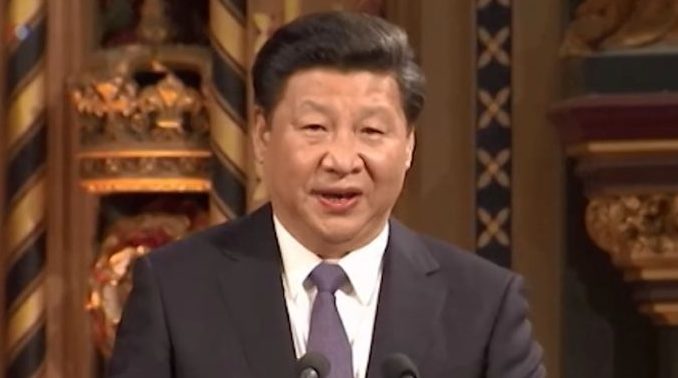
Offsetting some of the concerns about tariff levying that has rattled the stock markets this week, a report in the Wall Street Journal that China has made another overture to avoid a trade war seemed to encourage purchasing. According to the report, Chinese officials offered a deal to the United States: they would purchase almost $70 billion in U.S. goods over the next year in exchange for the tariffs being removed. The purchases would focus primarily on agricultural items and energy resources.
This is absolutely a complete success of the Trump trade policy, insofar as it is delivering exactly the result Trump desires. The elimination of tariffs, currently being delayed during continued talks due to the threat of reciprocal tariffs from China, would cost the United States nothing while the country reaps the benefits of additional purchases.
There are negatives, however. The first among them is recognized by the U.S. trade negotiators. According to Business Insider:
The US is also skeptical of the deal, the report said, because the energy purchases that would be directed to China could just come from exports to other countries, something that would mitigate the overall-trade-deficit benefit, and because there is a sense that US farmers could not ramp up production fast enough.
Additionally, the offer comes with the understanding that, should the tariffs be initiated, the offer becomes null and void. The ultimatum aspect reportedly displeases the American side.
Those are the immediate fiscal negatives. There are also the political ones. Tariffs are not being levied exclusively on China; they are simultaneously being placed on most other nations, including the country’s strongest historical allies. (BBC)
If a deal is negotiated to eliminate tariffs with China while keeping them on allies, it will increase U.S. dependence on China-U.S. trade bonds for international trade even as it results in a lower absolute imbalance. That has the potential of displeasing the Rust Belt voters who criticized the continued influx of cheap Chinese goods into American markets.
Simultaneously, with China being the body who will have offered concessions in exchange for keeping international monetary structures intact, they will be viewed as the more dependable and stable body for future dealings by other countries.
In addition, it will send a signal to our traditional allies that the official U.S. policy is to grant preferential status to China – at best a peaceful adversary – over friendly nations. The other nations of the G-7 are already at odds with the U.S. over not just the tariffs but over the Iranian nuclear treaty and Climate Change policy. Accepting the Chinese agreement will risk a greater rift with the other nations traditionally described as the “Western world”. Some are openly speculating that the Trump tariffs may cause the end of the G-7 summits as they exist and an unofficial restructuring of alliances.
Per Marketwatch:
After an unsuccessful charm offensive to try to convince President Donald Trump that a trade war was not in anyone’s interest, the leaders of the other six nations of the G-7 group are going to “try something else” and be more confrontational, added Heather Conley, a former U.S. State Department officials now with the CSIS.
This raises the risk of “an open rupture” of the group, said Roland Paris, an international affairs professor at the University of Ottawa, in a phone interview.
“The leaders are going to defend their interest from what is effectively economic aggression by the U.S.,” Paris said.
The U.S. seems to recognize the risk of damage to international structures, but recent statements by Larry Kudlow, the White House Economic Advisor, indicate that the administration doesn’t care. (TheNewsBlender)
There is the definite possibility of potential gain in following this policy. The question is whether the comparatively small, short-term fiscal gain is worth the damage to allegiances and risk of isolation from the world community.
